- Clone
- UIC2 (See other available formats)
- Regulatory Status
- RUO
- Other Names
- Multidrug resistance protein 1, ATP-binding cassette sub-family B member 1, P-glycoprotein 1
- Isotype
- Mouse IgG2a, κ
- Ave. Rating
- Submit a Review
- Product Citations
- publications
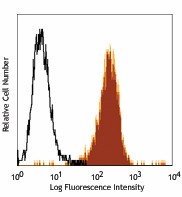
-

Human neuroblastoma cell line SK-N-FI stained with UIC2 PE
| Cat # | Size | Price | Quantity Check Availability | Save | ||
|---|---|---|---|---|---|---|
| 348605 | 25 tests | 146 CHF | ||||
| 348606 | 100 tests | 347 CHF | ||||
CD243 (MDR-1) belongs to the ATP binding cassette (ABC) transporter family. With an approximate molecular mass of 170 kD, it consists of two homologous halves. Each half contains two hydrophobic transmembrane domains (TMDs) and two hydrophilic nucleotide binding domains (NBDs). The TMDs span the membrane six times, forming a chamber with a 12 transmembrane α-helix structure. NBDs drive the transport process through ATP coupling and hydrolysis and are located at the cytoplasmic face of the membrane. CD243 transports various molecules across cellular membranes and is involved in multidrug resistance. MDR-1 is expressed on hematopoietic stem cells, T cells, B cells, and NK cells as well as on many multidrug resistant neoplastic cells. CD243 interacts with Caveolin, RING finger protein 1B, AAP1, p53, Orphan nuclear receptor PX, and cytochrome P450.
Product DetailsProduct Details
- Verified Reactivity
- Human
- Reported Reactivity
- African Green, Baboon
- Antibody Type
- Monoclonal
- Host Species
- Mouse
- Immunogen
- NIH 3T3 cells transfected with human MDR-1 cDNA
- Formulation
- Phosphate-buffered solution, pH 7.2, containing 0.09% sodium azide and BSA (origin USA)
- Preparation
- The antibody was purified by affinity chromatography and conjugated with PE under optimal conditions.
- Concentration
- Lot-specific (to obtain lot-specific concentration and expiration, please enter the lot number in our Certificate of Analysis online tool.)
- Storage & Handling
- The antibody solution should be stored undiluted between 2°C and 8°C, and protected from prolonged exposure to light. Do not freeze.
- Application
-
FC - Quality tested
- Recommended Usage
-
Each lot of this antibody is quality control tested by immunofluorescent staining with flow cytometric analysis. For flow cytometric staining, the suggested use of this reagent is 5 µl per million cells in 100 µl staining volume or 5 µl per 100 µl of whole blood.
- Excitation Laser
-
Blue Laser (488 nm)
Green Laser (532 nm)/Yellow-Green Laser (561 nm)
- Application Notes
-
Additional reported applications (for the relevant formats) include: blocking the efflux of fluorescent dyes1,2, immunoprecipitation1, and immunohistochemical staining of tissue sections of squamous cell carcinoma3.
-
Application References
(PubMed link indicates BioLegend citation) -
- Mechetner EB and Roninson IB. 1992. Proc. Natl. Acad. Sci. USA 13:5824. (Block, IP)
- Chaudhary PM, et al. 1992. Blood 80:2735. (Block)
- Kelley DJ, et al. 1993. Arch. Otolaryngol. Head Neck Surg. 119:411. (IHC-P)
- Goda K, et al. 2007. J. Pharmacol. Exp. Ther. 320:81. (Block)
- Product Citations
-
- RRID
-
AB_2273403 (BioLegend Cat. No. 348605)
AB_2273403 (BioLegend Cat. No. 348606)
Antigen Details
- Structure
- Member of ABC transporters family, MW ~170 kD. Consists of two homologous halves, each comprising two hydrophobic transmembrane domains (TMDs) and two hydrophilic nucleotide binding domains (NBDs).
- Distribution
-
Hematopoietic stem cells, T and B cells, natural killer (NK) cells, and many multidrug resistant neoplastic cells.
- Function
- Transport various molecules across cellular membranes. Involved in multidrug resistance.
- Cell Type
- B cells, Hematopoietic stem and progenitors, NK cells, T cells
- Biology Area
- Apoptosis/Tumor Suppressors/Cell Death, Cell Biology, Immunology
- Molecular Family
- CD Molecules
- Antigen References
-
1. Dulucq S, et al. 2008. Blood 112:2024.
2. Gottesman MM, et al. 2009. Nat. Biotechnol. 27:546.
3. Andreadis C, et al. 2007. Blood 109:3409. - Gene ID
- 5243 View all products for this Gene ID
- UniProt
- View information about CD243 on UniProt.org
Related Pages & Pathways
Pages
Related FAQs
- What type of PE do you use in your conjugates?
- We use R-PE in our conjugates.
Other Formats
View All CD243 Reagents Request Custom Conjugation| Description | Clone | Applications |
|---|---|---|
| PE/Cyanine7 anti-human CD243 (MDR-1) | UIC2 | FC |
| Purified anti-human CD243 (MDR-1) | UIC2 | FC,IHC-P,IP |
| PE anti-human CD243 (MDR-1) | UIC2 | FC |
| APC anti-human CD243 (MDR-1) | UIC2 | FC |
| PerCP/Cyanine5.5 anti-human CD243 (MDR-1) | UIC2 | FC |
| Alexa Fluor® 647 anti-human CD243 (MDR-1) | UIC2 | FC,IHC-P |
| Alexa Fluor® 594 anti-human CD243 (MDR-1) | UIC2 | IHC-P |
| Brilliant Violet 421™ anti-human CD243 (MDR-1) | UIC2 | FC |
Customers Also Purchased
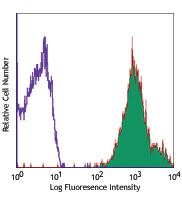

Compare Data Across All Formats
This data display is provided for general comparisons between formats.
Your actual data may vary due to variations in samples, target cells, instruments and their settings, staining conditions, and other factors.
If you need assistance with selecting the best format contact our expert technical support team.
-
PE/Cyanine7 anti-human CD243 (MDR-1)
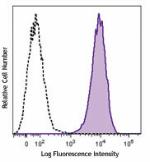
Human neuroblastoma cell line, SK-N-FI, was stained with hum... -
Purified anti-human CD243 (MDR-1)
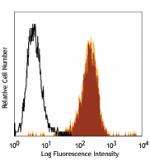
Human neuroblastoma cell line SK-N-FI stained with purified ... 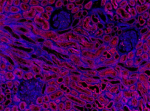
Human paraffin-embedded kidney tissue slices were prepared w... -
PE anti-human CD243 (MDR-1)

Human neuroblastoma cell line SK-N-FI stained with UIC2 PE -
APC anti-human CD243 (MDR-1)
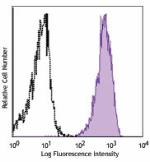
Human neuroblastoma cell line, SK-N-FI, was stained with hum... -
PerCP/Cyanine5.5 anti-human CD243 (MDR-1)
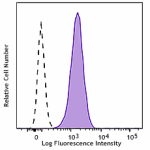
Human neuroblastoma cell line, SK-N-FI, was stained with hum... -
Alexa Fluor® 647 anti-human CD243 (MDR-1)
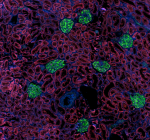
Human paraffin-embedded kidney tissue slices were prepared w... 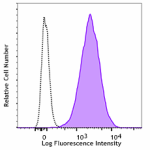
Human neuroblastoma cell line, SK-N-FI, was stained with hum... -
Alexa Fluor® 594 anti-human CD243 (MDR-1)
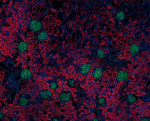
Human paraffin-embedded kidney tissue slices were prepared w... -
Brilliant Violet 421™ anti-human CD243 (MDR-1)
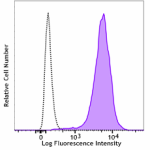
Human neuroblastoma cell line, SK-N-FI, was stained with hum...
 Login / Register
Login / Register 










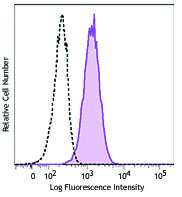
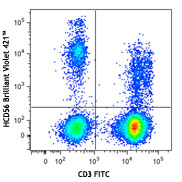



Follow Us